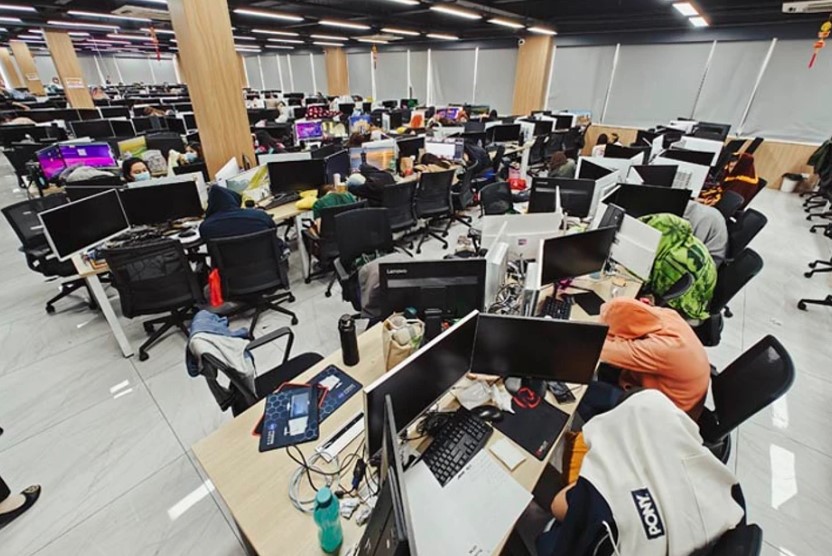Senators in the Philippines have intensified their demands for a blanket ban on Philippine offshore gambling operators (Pogos) after a recent raid exposed a horrifying sex trafficking ring near Manila. The raid, led by the Presidential Anti-Organised Crime Commission, resulted in the rescue of more than 700 victims, primarily Chinese nationals. The Pogo industry has been a source of controversy since its emergence in the Philippines in 2016, growing exponentially due to the country’s lenient gaming laws. This article delves into the disturbing events surrounding the Pogo industry, the calls for a complete ban, and the implications of these activities on the Philippines and its relationship with China.
The recent operation in Pasay City uncovered a six-storey building where two gaming firms were operating under new names despite having their licenses revoked by the industry watchdog, Pagcor. The establishment, in addition to hosting illegal gambling activities, featured a massage parlour, restaurant, pharmacy, karaoke television rooms, and money vaults. The raid resulted in the liberation of approximately 731 workers, including Chinese nationals, Filipinos, and foreigners. Tragically, the building was also found to contain a torture room, complete with airguns, handcuffs, and other torture devices, further highlighting the horrific conditions that many workers endured.
The operation culminated in the arrest of six individuals facing human trafficking and torture charges. The severity of these findings has provoked outrage among senators and raised serious questions about the lack of oversight in the Pogo industry.
Senator Joel Villanueva expressed his astonishment at how these companies continued to operate, even after their permits had been revoked. He has called upon Pagcor to take immediate action while advocating for a comprehensive ban on the Pogo industry. The shock of this raid, with its links to sex slavery and human trafficking, has further galvanized his position and the urgency of removing Pogos from the Philippines.
The Pogo industry reached its zenith by employing over 300,000 Chinese workers, but various factors, including the pandemic, higher taxes, and intensified enforcement, have forced many operators to seek alternative locations. Despite the economic benefits associated with the industry, the negative social impact and criminal activities associated with Pogos have gained significant attention.
Beijing has repeatedly warned its citizens against working in the Pogo industry in the Philippines due to the surge in criminal activities linked to it, such as cryptocurrency scams, kidnappings, and even murders. In the first half of the year, over 4,000 Pogo-related crimes, including kidnapping and human trafficking, were reported according to police data. China’s concerns have escalated to the point where they announced their intent to cooperate more extensively with the Philippines to combat illegal Pogos, as the issue is perceived as negatively affecting bilateral relations.
In 2022, the Philippine government made a commitment to stop the operations of 175 Pogos and deport around 40,000 Chinese workers as part of a crackdown on the industry, despite its annual contribution of 190 billion pesos (approximately US$3.2 billion) to the economy. The actions taken by the Philippine government highlight the serious nature of the concerns surrounding the Pogo industry.
Senator Sherwin Gatchalian, who chairs the Senate Committee on Ways and Means, has expressed his strong condemnation of the industry’s involvement in sex slavery and asserted that the Pogo regulator has failed to monitor the sector effectively. He believes that completely eradicating the Pogo trade is the only way to end its criminal activities.
(Source: SCMP | Dhel Nazario | Manila Bulletin)









